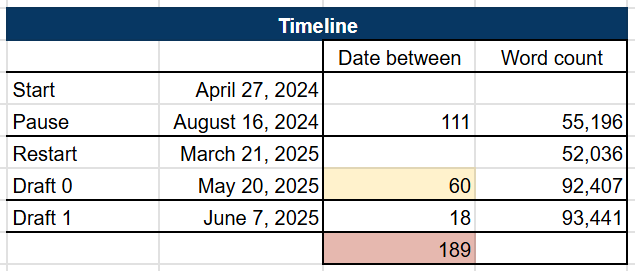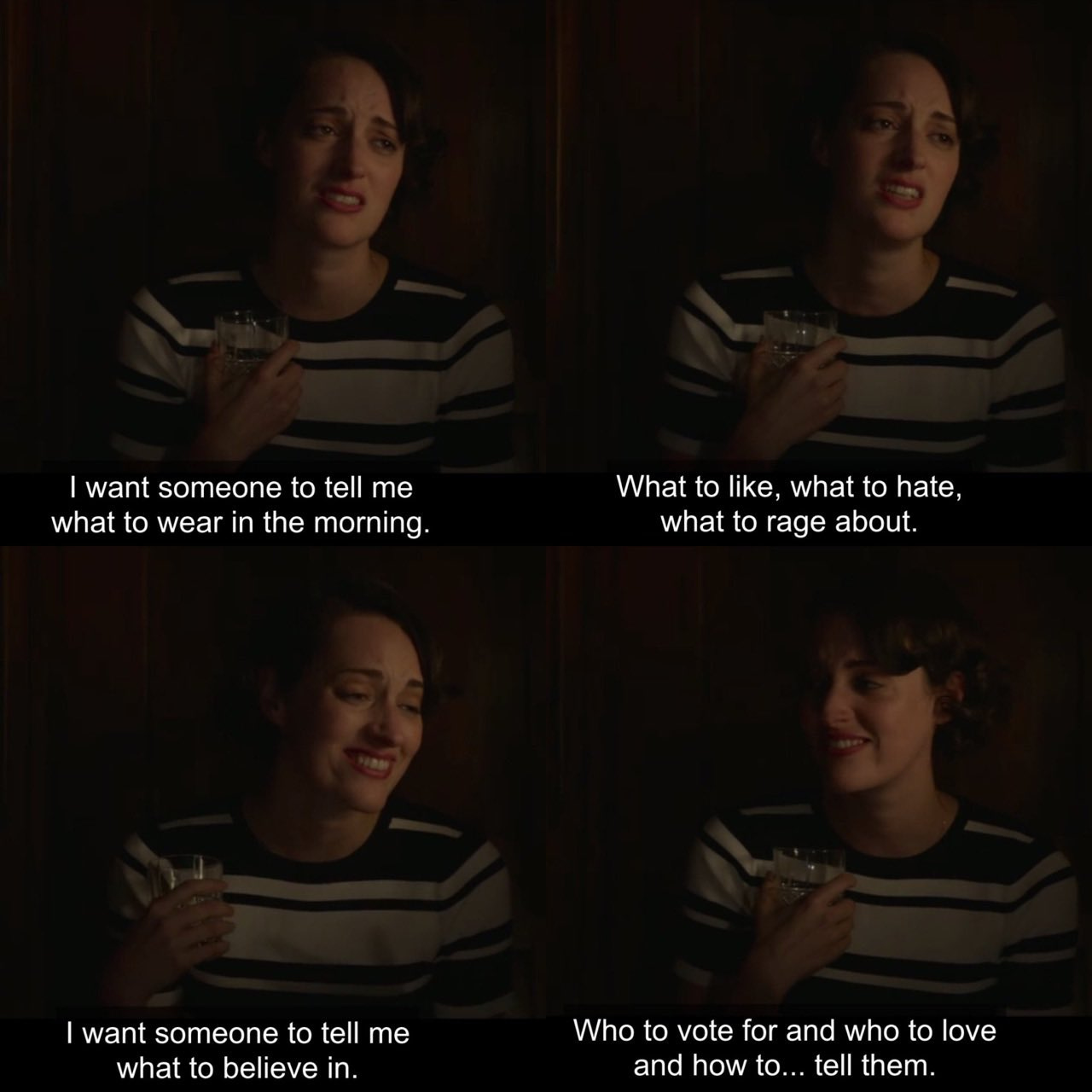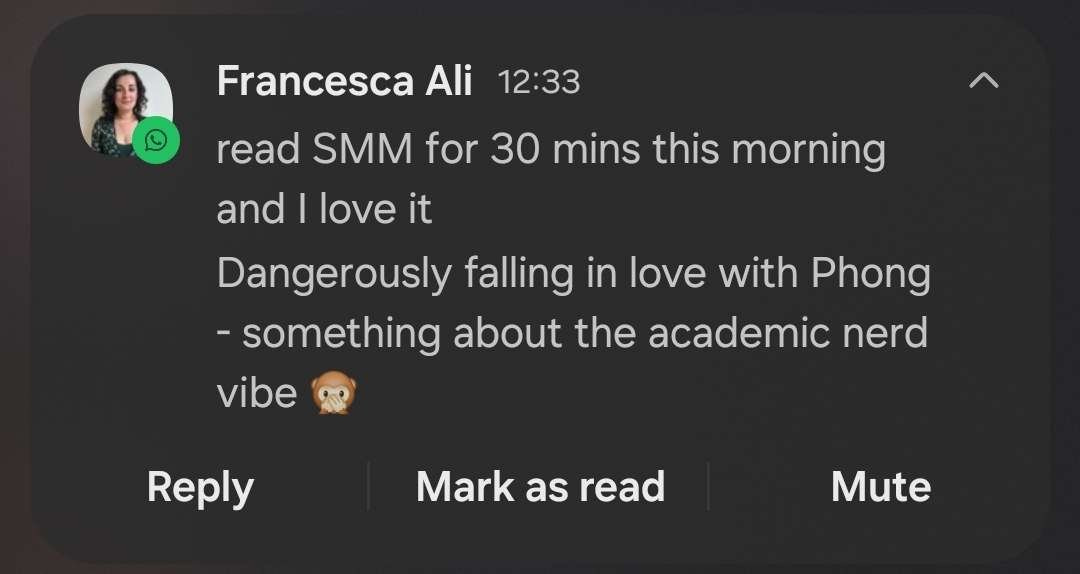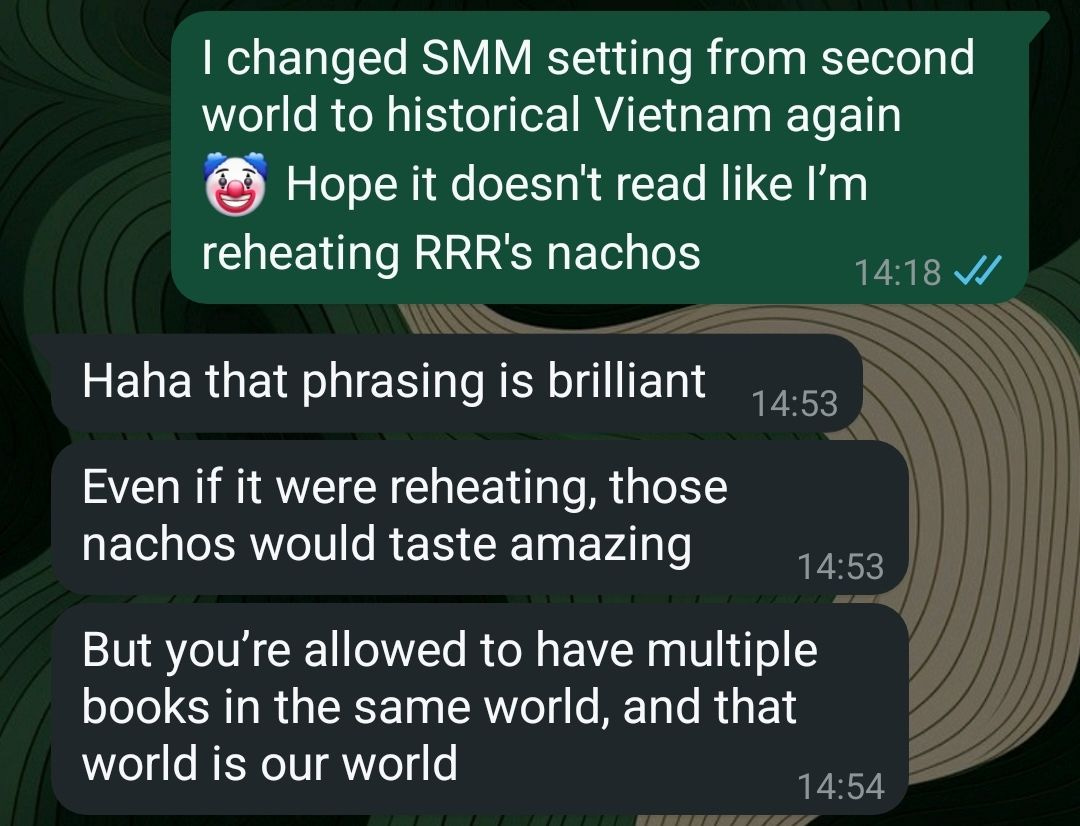Fast Drafting and the Art of Making Mistakes
or "The Art of Asking for Help."
After whining in several paragraphs about how I was struggling to draft my newest book, I finished it.
For the longest time, I feared that I couldn’t complete a project. As someone who constantly gets swept up in new, exciting, and attractive ideas, there is always a voice in my head telling me to drop the current project and start a new one. Of course, who wouldn’t be able to resist penning a blank page? Something about writing “CHAPTER ONE” is just as enticing as noting down the two holy words “THE END.” But writing chapter one is easier, getting to the point where you could deem a novel as done is much more difficult.
As a kid who wrote a new book every summer just for the vibe, I had a graveyard of unending projects. It was not a big deal back then, but it became a big deal when I started taking my writing career more seriously. This is the fourth year in a row where I finished one project per year, and yet this fear never quieted.
Everyone who had talked to me in the last year knew about the 50k-curse (some can even recite word-for-word my complaint on how this book had been the hardest one to write). For those who don’t know, I started talking about #codewip right after I wrapped up my other project. I actually had the idea for it about 2 months into drafting #MartialArtsWIP but I summoned all my will not to work on it back then. The blog post dated August 2023, it has been, what? Almost 2 years since? But my active drafting time for #codewip was actually only 189 days.

How did that happen? Well, many things. The most important thing is that I queried #MartialArtsWIP around May (hence why I started #codewip to smooth some edge of anxiety off my mind) and I was very lucky to get an agent by August. I also went on vacation and started revising my book in the second half of the year. So clearly, #codewip had some idle time while I was preparing its big sister for sub. My mistake was thinking I could just come back to it and breeze through the last 50k.
People might have told you to work on another project while you’re querying or on sub, but they never told you how hard that is. They didn’t tell you all the turmoil you would go through when you’re waiting and how there’s a war inside your head and it paralyzes you from producing any word. The 50k-curse was this: I wrote 55k from April 27, 2024 to August 16, 2024, and I only liked about 20k. Once I came back to continue writing, I made the fatal mistake of editing instead of drafting. I kept editing and rewriting up until the 50k mark when I lost my stamina. By 2025, I have read the draft like 4 times and words stopped meaning so much to me. I considered just putting it on hold altogether and working on something else, you know, maybe I just wasn’t ready to draft it. But as I put together my WIPkipedia for my agent, I somehow convinced myself I should at least finish #codewip.
So, how should I continue? Let’s put on our editorial glasses and identify the problem first. For the longest time, I believed this book was too close to home. #codewip was (initially) about the only immigrant boy in academia, who seeks acceptance from the elite so badly that he unknowingly lets his intelligence be weaponized until it’s too late. The story came straight out of my own experience in STEM academia and publishing. I drew the desperation to fit in right from my heart. In a sense, I capitalized on it, hoping it would bring me to the finishing line and tell the story I wanted to tell.
It helped me write maybe 10k, not 50k.
That’s the thing, isn’t it? Sometimes we get so caught up on the themes and not the story. Some writers, like myself, love to over-complicate our books with philosophies and smart discussions, but there isn’t a plot to back them up. It is not to say you shouldn’t think about your underlying message, but a good message not accompanied by a satisfying arc would make the book quite stilted. A book’s first purpose is to be captivating before it could be memorable.
On Feb 23, I admitted defeat by sending this to my agent:
But what I really wanted to send her was this screencap from Fleabag:
Admitting defeat was a big character growth for me personally. I didn’t do that ever. This was about half a year into being represented for the first time, and I was so desperate to impress my agent. My friends talked about the post-agent slump but I genuinely thought it wouldn’t be me (how wrong I was). It got so bad to the point where my agent read it during London Book Fair and she sent me this message:
My first thought was: Lmao I don’t believe you.
(Frankie, I love you so much, my brain just works differently. And to be honest, in about two hours, my second reaction was: Yay! I know it’s good 💅)
We had a call in the following days just to discuss what I had sent her. Her main diagnosis wasn’t even about the book, it was that I was being too hard on myself, and somewhere, a mirror shattered.
To understand this reaction, I must introduce you to two of my best writing friends Elle and Yi-Jun, who are brilliant, lovely, crazy smart (and just crazy), and have a very self-assured grip on their own craft. We are a tightly knitted group who always alpha-read each other’s books. The main thing to highlight here is that we can confidently say we write very clean first drafts. Yeah, long story short, the pressure of writing a clean first draft got to me.
Writing a clean first draft has dragged me back and forth between the first 50k of the book when it has no business being clean now. Writing a clean first draft is the weight I put on my own shoulders while simultaneously set the bar so high to deliver something readable (when sometimes, it already is). Writing a clean first draft hinders this project from getting to the finishing line.
I went after this mindset with a machete. I vowed to write something that is so unsellable, as long as it’s complete and it’s mine. Elle and I had a long call where I just yapped her ear off about the book and she helped me unlock what I didn’t manage to see but was already there. And to stop myself from obsessing over every single sentence, I started doing sprints every day for one hour. Just one. No reading back, no editing while I draft, just write.
There are drawbacks to sprinting too, but I believe the benefits outweigh them. I finished Draft #0 before the end of May, and contributed a lot of its success to my sprinting partner Elle (hi again).
Now you can’t assume I had no temptation. I sometimes had to sit on my hands to stop myself from editing. About a week before I finished Draft #0, I came up with 2 rogue thoughts and I was in everyone’s DMs asking if I should change them now. The compromise I negotiated with myself was to keep a list of editing points and work on them after draft #0 is finished. Who knows, rushing to edit it into the draft might be a stupid idea. I needed to sleep on them first.
And when the draft is done, then the fun (editing) begins.
What’s the purpose of this screenshot? Idk, I just think it’s funny. Girl, just get the words down and care less about the reception when you don’t even have a book to show for it.
In the end, no one could fix me (sorry Fleabag), no one but myself. But to fix my manuscript, I must first allow it to be flawed. Someone had said “You can edit a bad page, you cannot edit a blank page.” And to that, I also want to add that creating a bad page was also art in itself. In the age where the internet and books are overrun with generative AI, putting your bad page together all by yourself is something already worth applauding.
Books I’m reading
Silk: A World History (Aarathi Prasad)
Tết ở Làng Địa Ngục (Thảo Trang)
Language of the Dragon (S.F. Williamson)
What you can expect from me in the next few months…
Preferably a lot of rest. If you’re like me and always itching for the next project, you’d understand the amount of self-restraint I’m exerting on myself not to open a new Scrivener project right now. I have a lot of projects lined up and I always need to be working on something, but rushing might be detrimental to my writing. I believe practice makes perfect, but you must practice with intention. Diving into another project without resting, refilling your words well, giving the old project time to sink in or the new project time to marinate is pretty much just accelerating down your usual habits and mistakes. I know I have banger after banger lining up, but my skills need to catch up before I could pen them and do each novel justice.
Resting doesn’t mean you stop learning. I would be taking this time to hone my skills. That means getting back to reading (my TBR collectively lets out a sigh in relief), watching a lot of films, going to free lectures or finishing beta-reading my friends’ works. Reading with intention is itself practice, but maybe we can talk about this on another day.
I also have a poem and a short story coming out in the second half of the year! More details to come in the next newsletter(s).
Hope spring has been kind to everyone, see you in the hotter months.







I completely understand the pressure to write a clean draft (being a perfectionist sucks) I’m so glad you were able to push past it to write ‘the end’! I’m excited to see what you work on next ❤️
this is so timely for me specifically (so honored to be namedropped)